CELEBRATING QUEER BLACK HISTORY - QUEER BLACK CINEMA
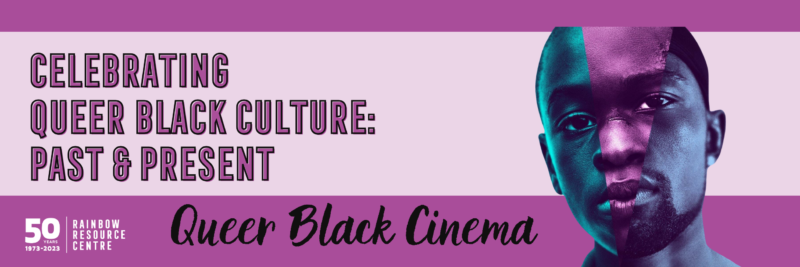
As we bring this celebration of queer Black culture to an end, we're closing with powerful storytelling about the queer Black experience. Today we recommend some must-see movies that show the queer Black experience through the years, through different lenses. Including Portrait of Jason (1967), Paris Is Burning (1990), Black Is … Black Ain’t (1994), The Death of Marsha P. Johnson (2017), and Moonlight (2016). Let's get started.
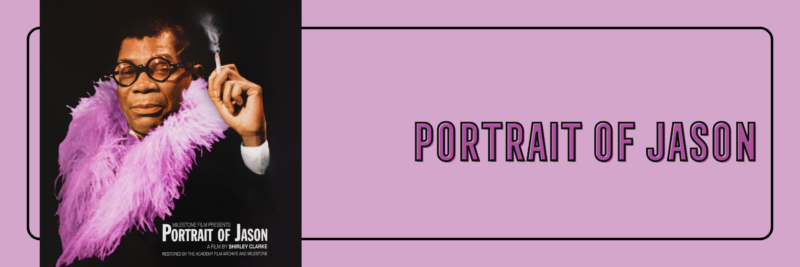
Portrait of Jason
The 1967 film "Portrait of Jason" is of critical importance to black queer culture as it stands as the first feature film about being a black, gay, and male individual. Directed by Shirley Clarke, the documentary provides a rare and unfiltered glimpse into the life of Jason Holliday, a gay African-American aspiring performer.
The film's significance lies in its portrayal of a perspective seldom seen in cinema, offering insights into broader racial issues, class politics, gay culture, and masculinity during the 1960s. "Portrait of Jason" defies easy categorization, raising questions about exploitation, truth, and representation. Its enduring relevance is evident in its place in the history of documenting queer black culture, with parallels drawn to later films such as "Paris is Burning" and "Kiki."
The film's unfiltered portrayal of a black gay man's experiences and its defiance of easy categorization make it a seminal work in black queer cinema, providing a platform for underrepresented voices and shedding light on the complexities of identity and representation within the 2SLGBTQ+ community.
References:
https://www.filmcomment.com/blog/cinema-67-revisited-portrait-jason/
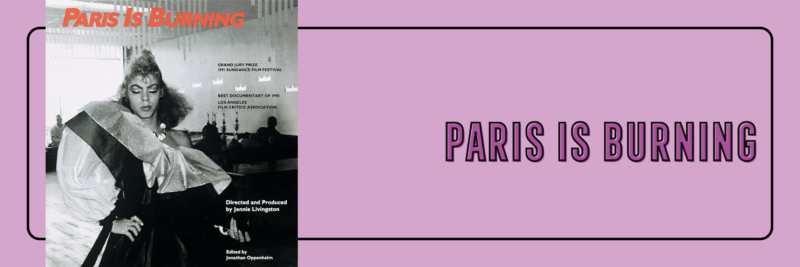
Paris is Burning
If you're exploring queer Black history, the 1990 documentary, Paris Is Burning, is a required viewing. The film provides a rare and intimate portrayal of the lives of Black and Latinx queer, trans, and gender-nonconforming individuals during the 1980s.
The documentary offers a window into the vibrant ballroom culture of New York City, showcasing the flamboyant rituals of balls and "voguing," while also delving into the personal stories and experiences of the participants. The film captures the resilience and defiance of these communities in the face of societal oppression, including the AIDS pandemic, racism, homophobia, transphobia, poverty, homelessness, violence, and harassment.
"Paris Is Burning" remains a powerful and enduring chronicle of overcoming adversity with audacity, highlighting the ability of Black and Latinx queer individuals to persist in self-affirmation despite the forces attempting to deny their humanity. The film's thematic core of resilience and vibrant resistance continues to be relevant in today's social and political climate, making it an essential piece of queer Black history that celebrates the lives and experiences of those often marginalized by society.
References:
https://blogs.umb.edu/cinemastudies/2020/11/14/paris-is-burning-an-important-slice-of-queer-history/
https://www.criterion.com/current/posts/6832-paris-is-burning-the-fire-this-time
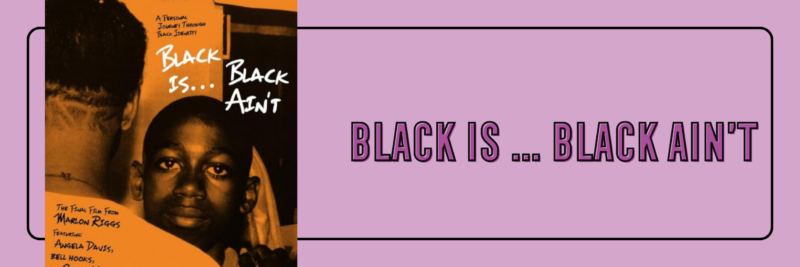
"Black Is... Black Ain't" is a 1994 documentary by Marlon Riggs that explores the diverse and contested definitions of Black identity. The film features personal testimonies, music, and history, as well as commentary by cultural critics and activists. It delves into the paradox of numerous, often contested definitions of blackness, addressing issues such as patriarchy, homophobia, colorism, and cultural nationalism within the Black community.
Riggs uses his grandmother's gumbo as a metaphor for the rich diversity of Black identities, showcasing the experiences of Black individuals from various backgrounds, including those who are young and old, rich and poor, rural and urban, gay and straight.
The documentary's emphasis on the messy and complicated realities of black female subjectivity in relation to queer desire makes it an essential piece of queer Black history, as it amplifies the often overlooked and marginalized experiences within the broader black community. Through its critical engagement with these themes, the film contributes to a more comprehensive understanding of the rich and diverse tapestry of queer Black history, highlighting the resilience, creativity, and resistance of queer Black individuals.
References
https://commonwealthtimes.org/2019/02/08/queer-black-people-are-an-integral-part-of-black-history/
https://newsreel.org/guides/blackgui.htm
https://www.imdb.com/title/tt0109285/plotsummary/
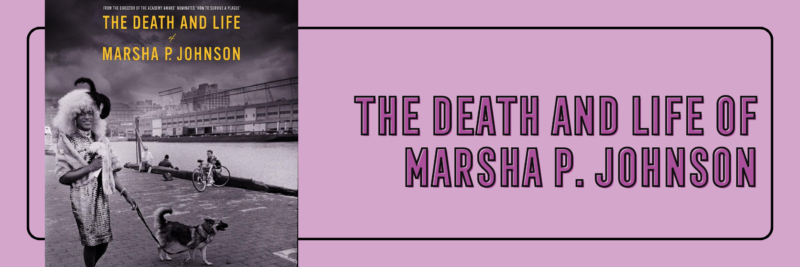
The Death and Life of Marsha P. Johnson
"The Death of Marsha P. Johnson" is a 2017 documentary that delves into the life and legacy of Marsha P. Johnson, a prominent Black transgender activist and key figure in the 2SLGBTQ+ rights movement. The film is essential viewing for understanding queer Black history as it sheds light on Johnson's pivotal role in the fight for equality, her impact on the modern 2SLGBTQ+ movement, and the ongoing challenges faced by Black transgender individuals.
By exploring Johnson's activism, her mysterious death, and the efforts to seek justice, the documentary provides a powerful and poignant examination of the intersectional struggles and resilience within the queer Black community. It serves as a reminder of the ongoing fight for social justice and the need to address the systemic issues that continue to impact Black transgender individuals.
The film's focus on Marsha P. Johnson's life and legacy offers valuable insights into the complexities of queer Black history and the ongoing pursuit of equality and recognition for marginalized communities.
References:
https://www.hrc.org/news/the-cold-case-of-an-lgbtq-pioneer-marsha-p-johnson
https://time.com/6263354/black-lgbtq-history-representation/
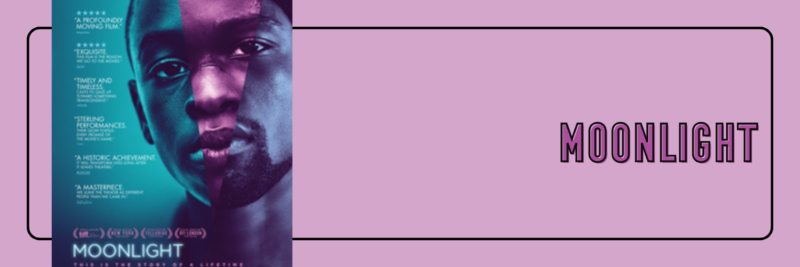
Moonlight
We end with the 2016 film, "Moonlight", which follows the life of Chiron, a Black man, through different stages, exploring the intersectionality between sexual identity and Black masculinity. Winner of eight Academy Awards (including Best Director, Best Supporting Actor, Best Supporting Actress, and Best Picture), this film is a must-see to understand queer Black history as it masterfully portrays the complexities of Black 2SLGBTQ+ experiences, addressing issues of hypermasculinity, sexual identity, and the challenges of navigating a patriarchal and heteronormative society.
The film provides an intimate and raw portrayal of Chiron's journey, shedding light on the struggles and resilience of Black queer individuals. Through its unique storytelling and visual aesthetic, "Moonlight" offers a deeply humanizing perspective, making it an essential piece for understanding the multifaceted realities of queer Black history and the nuances of identity within the Black 2SLGBTQ+ community.
References:
https://themedium.ca/how-the-film-moonlight-explores-the-queer/
https://thedailycougar.com/2024/01/24/moonlight-embodies-queer-black-relationships/
